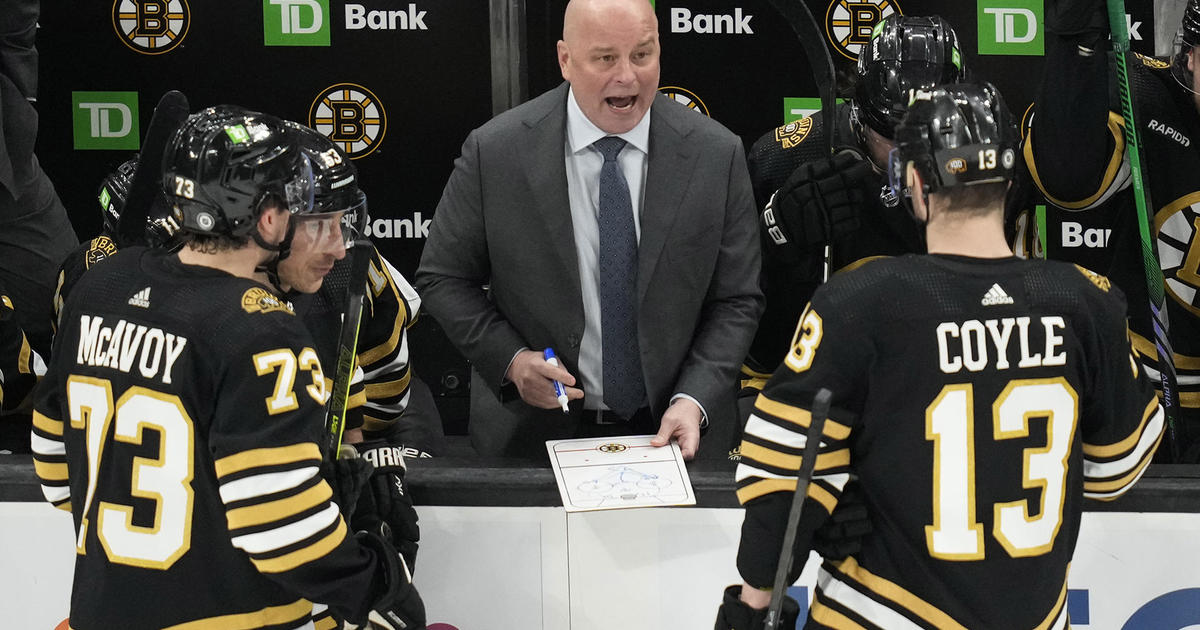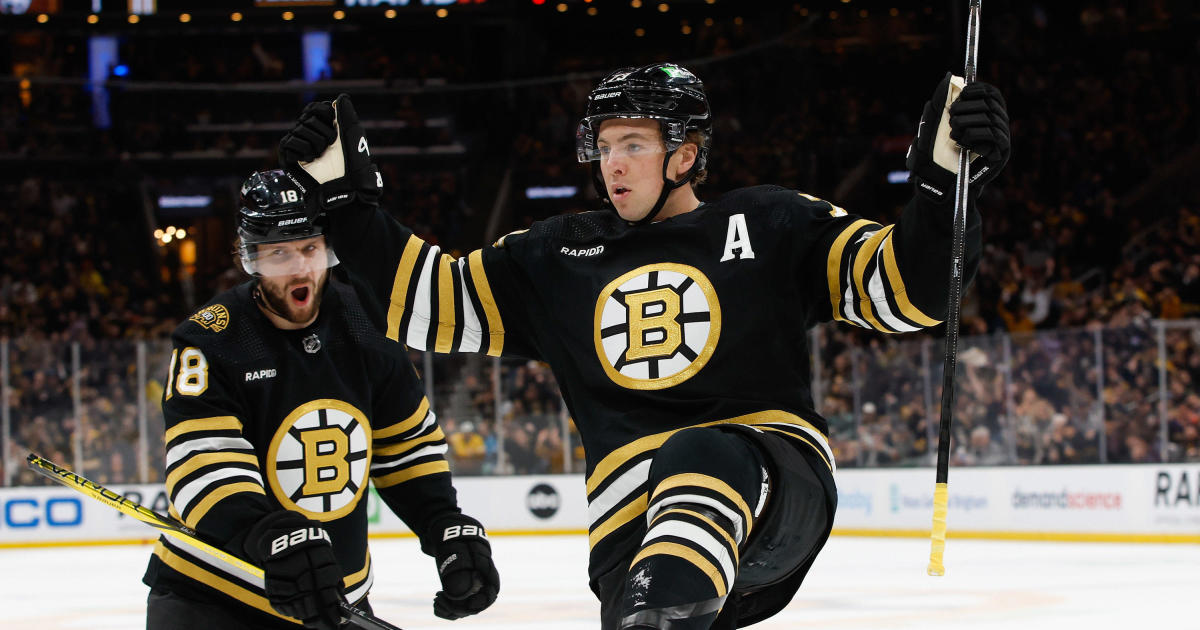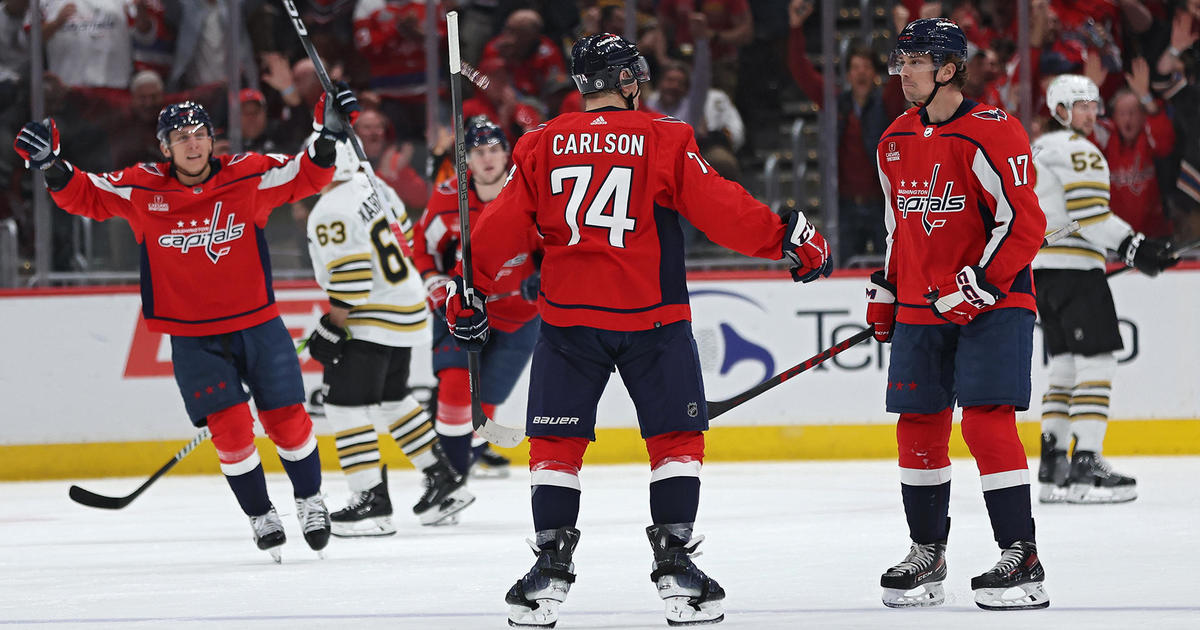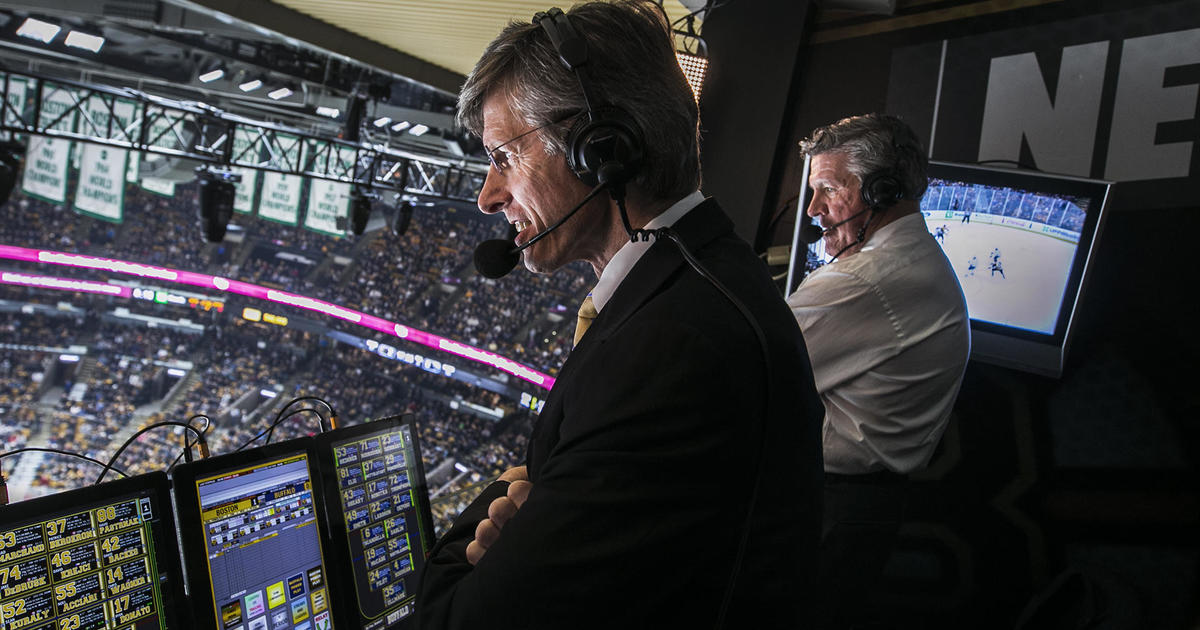Hurley: Are Boston Bruins Broken Beyond Repair?
BOSTON (CBS) -- Two losses in a season of 82 games are just that: two losses. They can't sink a season, dash playoff hopes, cancel championship aspirations or anything of the sort. They simply add up to a missed opportunity at gaining four points.
Yet on the heels of two embarrassing losses north of the border -- a 6-1 thumping at the hands of the Maple Leafs and a 5-1 shellacking in Montreal on consecutive nights -- the Bruins find themselves at their lowest point in several years. When the Bell Centre is blasting the Bruins goal song as an auditory victory lap late in the third period, and when NHL.com is running "Hab Merci" headlines after your loss, you know things have gotten bad for the Bruins.
But just how bad is it? And, more importantly, is there anything the players, coaches and front office staff can do to turn things around quickly?
There is, of course, the obvious explanation that the Bruins are playing without their captain, Zdeno Chara. Though Chara has, for whatever reasons, always had his detractors in the region, the fact remains that Chara is one of the most dependable defensemen in the entire NHL, logging some of the most difficult minutes, facing opponents' top lines, oftentimes carrying his defensive partner and overall providing incredibly hard-to-find stability on the back end. Any way you slice it, Chara's absence from the lineup is a significant one when the Bruins face any above-average team.
The team is also without David Krejci, the forward with the most brilliant offensive mind on the roster. And when the team plays without Krejci, it essentially plays without Milan Lucic, too. Prior to the two-game skid, Jesse Connolly of Along The Boards laid out the numbers for Lucic when he plays without his center since 2011, and they are ugly: zero goals, zero assists, zero points. Lucic did pick up an assist in Toronto, so he now has 0-1-1 totals in 14 games without Krejci on the ice to set him up. So for as long as Krejci remains out with the mystery injury that caused him to miss time, return to the lineup and then sit out again, the Bruins are essentially without two of their top five scorers.
And it's not just Lucic who feels the effects of Krejci's absence. In the 10 games that Krejci has played this season, the Bruins have scored 3.33 goals per game. In the eight games without him, they've averaged 1.88 goals.
Those are two problems that can't be solved until Chara and Krejci reach full health (or close to it), but it's been clear in watching this team all season long that there's just something not quite right.
This is a team that won the Presidents' Trophy last season and returned basically the same team except for Jarome Iginla and Johnny Boychuk. To be sure, the losses of Iginla (30 goals, 31 assists last year) and Boychuk, who took major strides in stepping into a No. 2 D-man role last season and was thoroughly solid, are not insignificant. Yet those two players were the only real losses (sorry, Shawn Thornton), and they can't by themselves explain a drop from third to 15th in goals per game, second to 16th in goals allowed per game and eighth to 25th in penalty kill percentage.
Such drastic drops are more indicative of team-wide struggles, whether it be a lack of chemistry, misguided coaching strategies or just general underperformance.
It's that last bit that might be the simplest explanation thus far. Through 18 games, the Bruins have just two forwards -- Patrice Bergeron and Carl Soderberg -- with more than 10 points. Those two are tied for 47th in the NHL in scoring. And Bergeron, who's been asked to do too much from the very start this season, has hardly been himself. He has three goals and 10 assists after scoring 30 goals last season (he's on pace for 14 as of right now), and even more shocking, he's a minus-2 on the year. (Obligatory note about plus-minus being a flawed statistic that by itself cannot paint a full picture.) For the reigning Selke winner who finished at plus-38 last year and was a plus-118 player from 2010-14 and is playing in the same system with the same coach on the same line this season, that number's a bit startling.
Yet painting Bergeron as the problem is a misguided endeavor.The same can be said about Tuukka Rask, who's recently come into focus thanks to Claude Julien's Canadian goaltender shuffle this week. While the sports radio debates about whether it was right or wrong to hold Rask out of Thursday's game in Montreal will make for good fodder, it ultimately won't matter. Rask is the team's netminder, and he will play every meaningful game for the better part of the next decade. One night on the bench in November does nothing to change that.
The reigning Vezina winner's statistics, too, don't mean a whole lot right now. He's currently ranked 34th in save percentage (.901) and 25th in goals-against average (2.69). That's certainly not good, but like anyone else, Rask has always had cold streaks. Plus, his overall numbers are more a representation of the play in front of him than anything else -- it's not as if Rask has melted down at any point and began allowing soft goals. Rask, despite the ugly numbers, should be the least of the Bruins' concerns.
Offensively, Torey Krug's injury certainly hurt the team, perhaps just as much as Chara's absence hurt the team on the back end. The Bruins are obviously a team that relies on contributions from the top of the roster to the bottom, but not having anyone in the top 50 in goals scored is indeed a problem. By contrast, the Bruins had four players -- Bergeron, Iginla, Marchand, Lucic -- in the top 52 last season. Then again, last year's team finished with a plus-84 goal differential and had a plus-19 goal differential through 18 games, whereas this year's team has just a plus-1. So perhaps it's best to stop comparing this year to last year.
But how could it have changed so drastically and so quickly? How could the team that ran away with the Eastern Conference last year become a team that is barely hanging on to the final wild-card spot through more than 20 percent of the season?
Surely, it can't all be pinned on any one thing, and it would be wildly unrealistic to believe that Krejci and Chara will be able to return at 100 percent and instantly turn this team around. It's going to be up to Julien to do what he can with a top line that has an injured center and no permanent solution at right wing, a fourth line that employs Gregory Campbell, Daniel Paille and Simon Gagne (combined: six points, minus-2 rating) and a defensive corps that has forced Zach Trotman and Joe Morrow (combined: two NHL games played prior to this season) into regular playing time. That's no easy task for a coach.
If the Bruins are to get where they believe they should be by the spring, it will be up to Peter Chiarelli to identify where that spark is missing in his team and then adjust his roster as necessary. In recent years, Chiarelli has had the luxury of not needing to make major changes prior to the trade deadline, instead opting for minor moves to tinker with the bottom of the roster. But those days appear to be over, as the departures of Tyler Seguin, Andrew Ference, Nathan Horton, Iginla and Boychuk may have finally disrupted the core enough where changes need to be made -- both up front and on defense. The addition of an Andrej Meszaros or a Brian Rolston or a Wade Redden or even a Jaromir Jagr is simply not going to be enough this year, and it's safe to say that Chiarelli has his work cut out for him between now and early March.
That work, though, will be what helps the team in the long run. In the short term, the Bruins will just have to do what they were doing prior to the two-game embarrassment in Toronto and Montreal, and that is beat up on bad teams. If the Bruins are a mediocre team without Krejci and Chara, they'll have no room for error in games against the league's bottom feeders. They got away with some sloppy play vs. Edmonton by rallying to a 5-2 win in the midst of their five-game win streak against teams that are a combined 29-37-14 on the season. Between now and New Year's Eve, the Bruins have their fair share of middling-to-lousy opponents, but they also have a stretch against Montreal, Pittsburgh, Winnipeg, Anaheim, Los Angeles and San Jose (combined 59-28-13) that could make for a long and painful week and a half if things don't turn around quickly.
That much of it is up to the players. There's not one member of the Bruins that can say he's doing a satisfactory job, and Thursday's loss in Montreal proved how split-second mistakes lead to turnovers that can quickly lead to pucks finding their way into the Boston net. Soderberg's turnover, Hamilton and Dennis Seidenberg's behind-the-net collision and Hamilton's neutral-zone giveaway were mistakes that led immediately to Montreal goals, and they were mistakes that had absolutely nothing to do with Boychuk, Iginla, Chara or Krejci. They had everything to do with players making mistakes.
Those problems are fixable, which means lopsided losses likely won't pile up for the Bruins. But through 18 games, the Bruins are a middle-of-the-pack team in nearly every measurable way, and it's going to be up to Chiarelli to get creative and get back to his bold ways -- the ways that led to the additions of Mark Recchi and Dennis Seidenberg as well as the formation of a solid third line in 2011 -- to fix it.
Read more from Michael Hurley by clicking here, or find him on Twitter @michaelFhurley.
MORE BRUINS COVERAGE FROM CBS BOSTON



